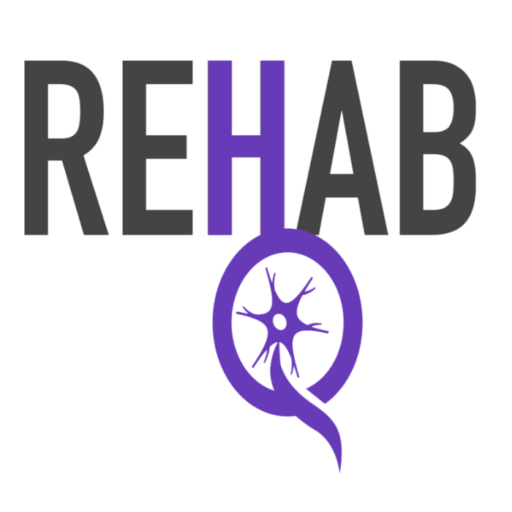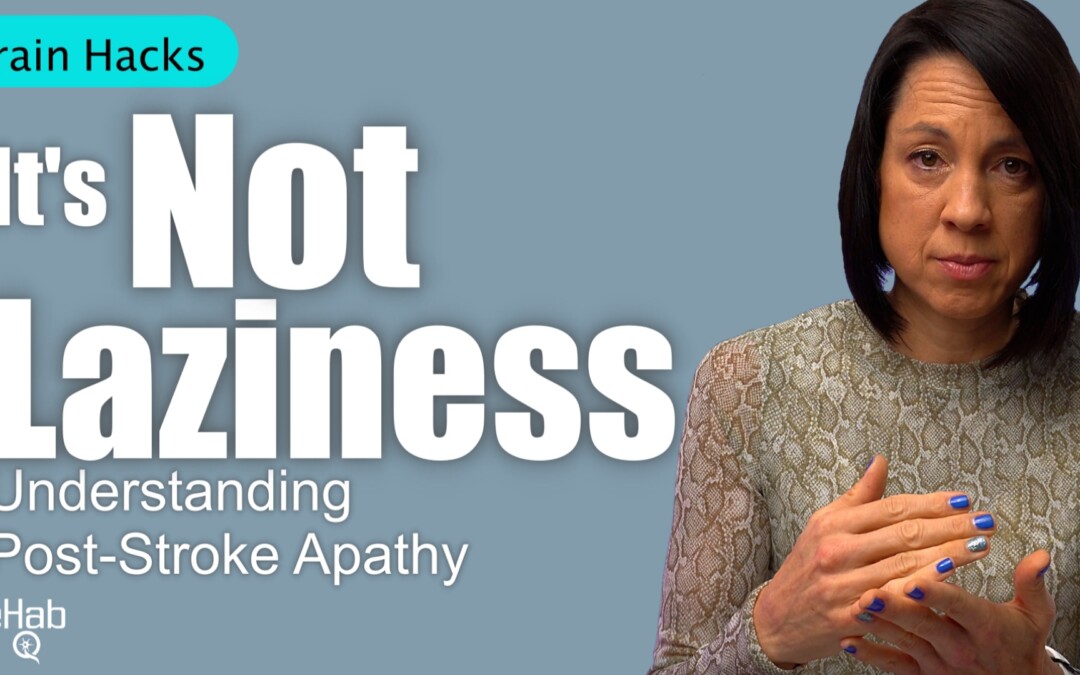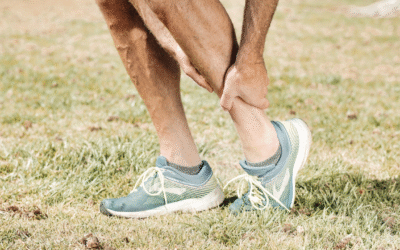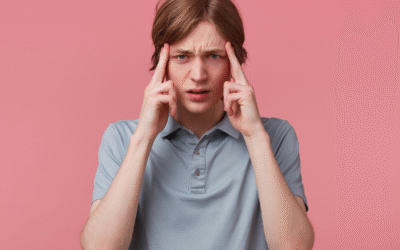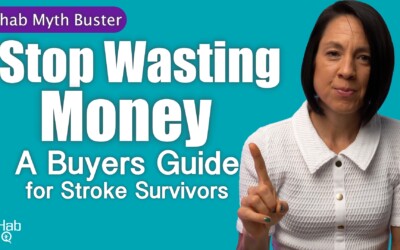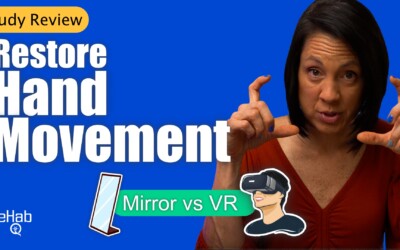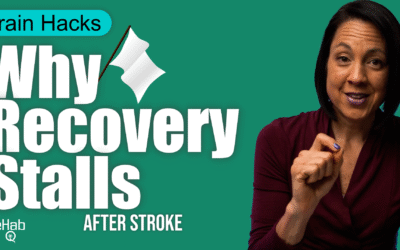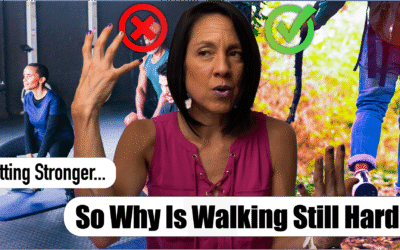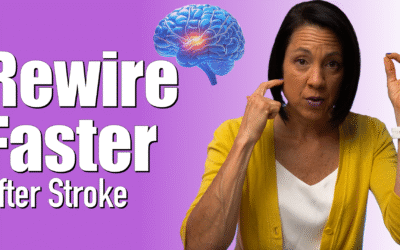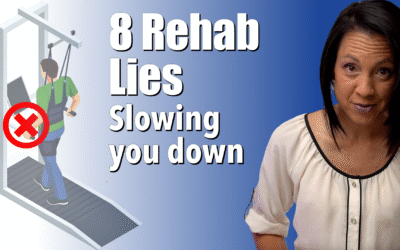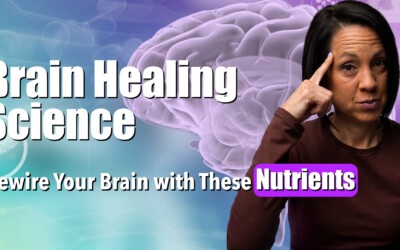What’s Really Going On When Motivation Disappears After Stroke
Recovering from a stroke is a journey that requires strength, patience, and persistence. But for many stroke survivors, the hardest part isn’t weakness, fatigue, or memory loss. It’s something less visible yet deeply impactful: apathy.
If you’ve noticed that you or your loved one has lost motivation, seems disconnected from recovery, or struggles to start activities even when they want to, it could be post-stroke apathy. This condition is far more common than most people realize, yet it often goes undiagnosed and untreated.
Recovering from a stroke is a journey that requires strength, patience, and persistence. But for many stroke survivors, the hardest part isn’t weakness, fatigue, or memory loss, it’s something less visible yet deeply impactful: apathy.
If you’ve noticed that you or your loved one has lost motivation, seems disconnected from recovery, or struggles to start activities even when they want to, it could be post-stroke apathy. This condition is far more common than most people realize, yet it often goes undiagnosed and untreated.
What Is Post-Stroke Apathy?
Post-stroke apathy is a neurological condition characterized by a lack of motivation or drive to act. It’s not the same as being lazy, unmotivated, or disinterested, it’s a symptom of changes in the brain caused by the stroke itself.
A person with apathy may understand what needs to be done and even want to participate, but they find it extremely difficult to initiate action. For caregivers and family members, this can be confusing and frustrating. It’s important to remember that this isn’t a choice or a personality change. It’s a direct result of brain injury.
What the Research Says
Research suggests that approximately one in three stroke survivors experiences some degree of apathy during recovery. While studies have shown mixed findings on whether apathy is more common after right or left hemisphere strokes, clinical experience points strongly toward those with right hemisphere involvement.
Unfortunately, individuals who experience apathy tend to have poorer long-term outcomes, not because they are less capable of recovery, but because apathy is rarely identified or addressed in therapy. When the drive to act is gone, rehabilitation participation naturally decreases, and without intervention, this can stall progress.
Why Post-Stroke Apathy Happens
Apathy develops when certain regions of the brain responsible for motivation, initiation, and emotional drive are affected by the stroke. These include the frontal lobe, basal ganglia & internal capsule, thalamus, and white matter pathways.
The frontal lobe is responsible for initiation and goal-directed behavior, while the basal ganglia and internal capsule help regulate dopamine. This is a neurotransmitter that fuels our “drive”. The thalamus acts as a relay center between thinking and emotion, and damage here can disrupt the connection between intention and emotional engagement.
White matter changes, often caused by small or repeated strokes, can gradually diminish the brain’s ability to initiate actions. These subtle changes are sometimes misdiagnosed as depression, especially when motivation decreases slowly over time.
The Challenge of Recognition
Apathy is frequently mistaken for depression, but the two are distinct conditions. Depression involves sadness, hopelessness, or emotional pain, whereas apathy is marked by emotional flatness and a lack of drive. A person with apathy may not feel sad. They simply struggle to begin or sustain activity.
One of the reasons post-stroke apathy is often overlooked is anosognosia, a condition where individuals are unaware of their own limitations. This can make it difficult for them to recognize that they need help or to understand the extent of their condition.
Because of this, caregivers play an essential role in noticing changes and communicating them to healthcare professionals. From there, the clinician’s task is to differentiate between depression and apathy to ensure the right interventions are provided.
Signs of Post-Stroke Apathy
You might notice:
- Needing constant reminders to start tasks
- Acting only when told
- Feeling emotionally “flat”
- Losing interest halfway through activities
- Saying “I know I should” but never starting
If these behaviors last more than a few weeks, it might be time to talk to your healthcare provider.
What Helps Rebuild Motivation
The good news? Apathy can improve with the right strategies. The brain can relearn how to initiate and engage, but it takes structure, consistency, and patience.
1. Use a Timer
Start small. Set a 20-minute timer for your therapy or task. Knowing there’s a clear start and end makes it less overwhelming and helps your brain “activate.”
2. Keep a Daily Checklist
Write down 3 simple tasks each morning, like “stretch for 5 minutes” or “walk to the mailbox.”
Checking things off gives your brain a dopamine boost and helps rebuild drive.
3. Keep Things Simple
Focus on one therapy activity per day and be consistent. After a month, you can gradually add another activity. Small, steady progress helps the brain re-engage without feeling overwhelmed.
4. Focus on the Basics
Sleep, nutrition, mindfulness, and gentle movement all improve attention and energy. Think of them as the foundation for rebuilding motivation.
5. Caregivers: Keep Prompts Simple
If you’re supporting someone with apathy, be patient. Give clear, calm prompts and avoid nagging, it’s not that they don’t care, their brain just needs more cues to act.
6. Emerging Approaches
-
Repetitive Transcranial Magnetic Stimulation (rTMS): Early research shows promise in enhancing motivation by targeting neural pathways.
-
Dopaminergic medications: Can be beneficial under medical supervision,. Stimulants such as amphetamines are generally not recommended after stroke.
Final Thoughts
Post-stroke apathy is not a sign of laziness. It’s a neurological condition that deserves understanding and proper care. Recognizing it early, involving caregivers, and working with professionals who understand its root causes can greatly improve recovery outcomes.
If you or a loved one is struggling with motivation after a stroke, know that it’s not about willpower, it’s about healing. The more we understand how the brain works, the better we can support its remarkable ability to recover.
So, if motivation feels hard right now, don’t wait for it to return, start anyway, even for one minute. Action itself can reawaken drive and help your brain heal.
And if you’d like help building a plan that actually works for your recovery, join us at Rehab HQ. We’ll help you create realistic routines, track your progress, and reconnect with your motivation step by step.
👉 Click here to explore our recovery plans or learn more about one-on-one coaching with Tara.
Articles you may be interested in
Spasticity or Weakness? Understanding Your Stroke Symptoms
How Can You Tell If It’s Spasticity or Weakness After Stroke? https://youtu.be/3QR9D4rBNhc If you’ve had a stroke, you’ve probably heard a few of these words tossed around: spasticity, weakness, stiffness, foot drop. They might all sound similar, but they each tell a...
Master Ankle Mobility: Exercises for Better Walking
Ankle Mobility Exercises to Boost Balance and Walking Ankle stiffness is one of the most common issues people face after a stroke or any neurologic injury. It can make walking harder, cause your toes to catch, or even affect your balance. But here’s the thing,...
Improve Focus and Attention After Stroke
Stroke Recovery: How to Regain Focus and Attention Faster https://youtu.be/ul0wUgXravo When most people think about recovery after a neurologic injury like a stroke, brain injury, or MS, they often focus on the physical side. Strength. Repetitions. Muscle activation....
Should You Spend Money on Stroke Rehab Devices?
Are Trendy Rehab Treatments and Devices Worth It? Here's My Honest Take https://youtu.be/T69LavHLdIQ Should you be spending your hard-earned money on all those rehab devices popping up in your social media feed? And if so, which one is actually worth it? The truth?...
Restore Hand Movement After Stroke with Mirror Therapy
Mirror Therapy & VR: Stroke Recovery for the Hand https://youtu.be/OeThZMwJt40 If you’ve lost movement in your arm after a stroke, you’ve probably wondered: “Is my arm just weak, or is something deeper going on in my brain?” That’s not because your muscles forgot...
Stroke Recovery Plateau: What to Do
Why Stroke Recovery Stalls and How to Push Through Recovery may feel stuck, but progress is still possible. Here’s how to keep improving after a plateau. https://youtu.be/w6xZZpx7tDY Recovering from a stroke or neurologic injury can feel overwhelming. Walking,...
Why Your Stroke Exercises Aren’t Helping and How to Fix It
Stroke Recovery Tips: When Exercises Don’t Seem to Work https://youtu.be/9r06T9gtsYc Is it possible to be making progress after a stroke or neurologic injury and still feel like your movement is getting stiffer, heavier or just plain harder?Absolutely. And let me tell...
Boost Stroke Recovery: 3 Brain Habits That Actually Work
Want to Rewire Your Brain Faster After Stroke? Try These 3 Habits https://youtu.be/iFcjDtHrrwM If you’ve been on this neuro-recovery journey, you know it can feel like progress is slow. You do your exercises, you follow instructions, but sometimes your brain seems…...
Stroke Recovery Myths Debunked: The Truth About Healing
8 Neuro Rehab Myths That Are Holding You Back (And What to Do Instead) Debunking Common Myths About Neurologic Recovery https://youtu.be/chTfi1d5kn4 If you’ve ever been told that your recovery after a neurologic injury has an expiration date, or if your physical...
Best Foods for Brain Healing and Mental Clarity
Brain Recovery Nutrition How Diet Fuels Healing and Focus https://youtu.be/P5UJMJJRVdw When it comes to stroke recovery, exercise and rehab often take the spotlight. But what if the foods you eat and the nutrients inside them could also play a powerful role in healing...
